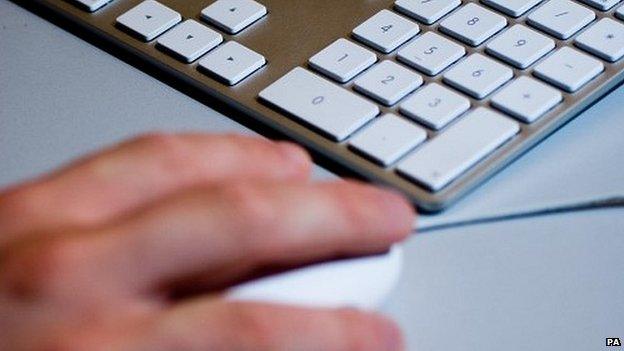MPs unveil plan to extend e-petitions to Commons
- Published

People can already lobby government departments through e-petitions
MPs have published plans to allow people to send e-petitions directly to the House of Commons.
The proposals,, external from the Commons Procedure Committee, would extend a system of e-petitions which already exists for government departments.
A new Petitions Committee would be set up to consider the documents and communicate with petitioners.
Petitioners would be called to give oral evidence in parliament and their campaigns would trigger debates.
Since 2011, people have been able to lobby government departments electronically, external. Petitions receiving more than 100,000 signatures can trigger a debate in the House of Commons.
Under the new plans, the existing e-petition site would be redesigned and jointly run by the House of Commons and the government.
A new Petitions Committee would back up the system.
Its proposed chair, Conservative backbencher Charles Walker, said: "Our proposals will enable the House to respond more effectively to petitions than it does now. Setting up a committee of MPs to consider the petitions presented to the House, hear petitioners' concerns and scrutinise the government's response to them is a fundamental part of the system we propose."
"This should improve the information available to the public about what the Commons does and the many ways in which MPs can respond to the people's concerns.
Proposed role of Petitions Committee:
corresponding with petitioners
calling petitioners to give oral evidence
referring petitions to select committees
seeking information from the government
putting forward petitions for debate in the Commons.
The proposals will now be submitted to the government and will be subject to a vote in the Commons. They are expected to be agreed early next year so the new e-petitions system will be available by the start of the next Parliament.
- Published13 September 2012
